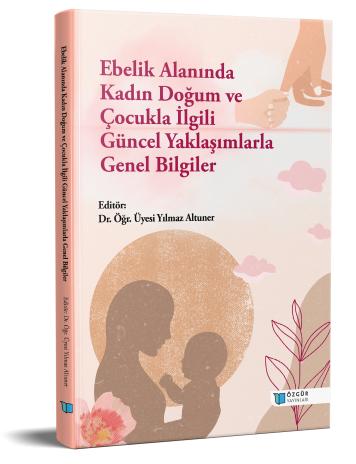
Women’s Reproductive Health
Chapter from the book:
Altuner,
Y.
(ed.)
2025.
General Information about Women, Birth and Children in The Field of Midwifery with Current Methods.
Synopsis
The female reproductive system functions properly through the harmonious operation of hormones and organs. Reproductive health encompasses the menstrual cycle, fertility, infertility, contraception methods, menopause, and breast health.
The menstrual cycle is a hormonal process experienced approximately every 28 days by women from puberty to menopause. This cycle consists of four phases: the follicular phase, ovulation, the luteal phase, and menstruation.
Fertility refers to a woman's natural ability to conceive. Factors such as ovulation patterns, hormonal balance, and uterine health affect fertility. Infertility is defined as the inability to achieve pregnancy after one year of regular, unprotected intercourse. The cause may originate from either the woman or the man. Conditions such as hormonal imbalances, polycystic ovary syndrome (PCOS), and endometriosis can lead to infertility.
Various methods are available for contraception, including hormonal, barrier, and permanent options:
-
Hormonal methods: Birth control pills, injections, and vaginal rings
-
Barrier methods: Condoms, diaphragms
-
Intrauterine devices (IUDs): Hormonal or copper coils
-
Permanent methods: Tubal ligation (in women), vasectomy (in men)
Menopause refers to the permanent cessation of the menstrual cycle due to the decline of ovarian function. It typically occurs between the ages of 45 and 55. Common symptoms include hot flashes, sleep disturbances, osteoporosis, and mood changes.
It is crucial for women to perform regular breast self-examinations and attend routine medical check-ups. Early detection of breast cancer significantly improves treatment outcomes. Mammography screenings, healthy nutrition, and regular physical activity contribute to maintaining breast health.
Women’s reproductive health should be supported through regular medical examinations, a healthy lifestyle, and informed contraceptive choices.

